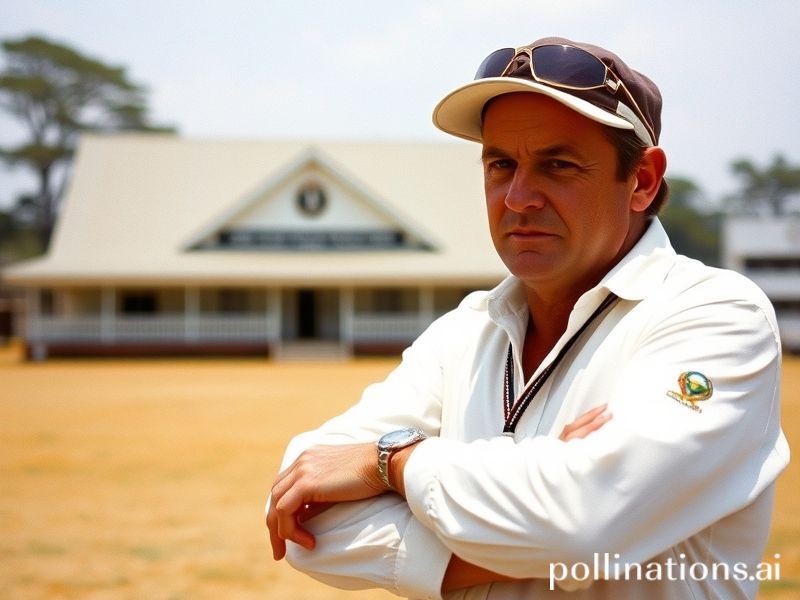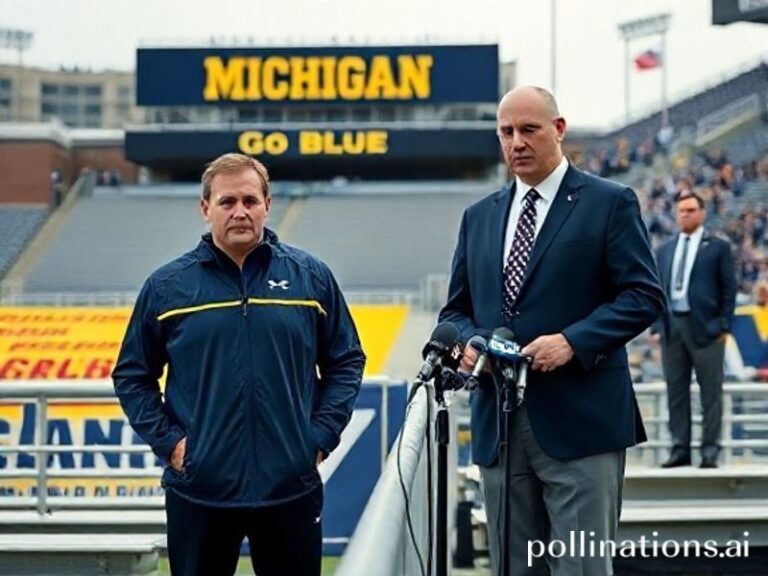Andy Pycroft: The Last Referee Standing Between Cricket and the Abyss
In the grand carnival of global cricket—where every dropped catch reverberates from Mumbai bars to Melbourne betting syndicates—few names carry the faintly ecclesiastical ring of Andy Pycroft. To the uninitiated, he sounds like a minor character from an Evelyn Waugh novel who accidentally wandered onto the pitch clutching a gin rickey instead of a bat. Yet for the last four decades the man from Bulawayo has been the sport’s closest approximation to a travelling inquisitor, armed less with thumbscrews than with a furrowed brow and a regulation tape-measure. As match referee, Pycroft now roams international venues like a spectral headmaster on detention duty, reminding millionaire athletes that someone, somewhere, still cares whether the seam is 4.5 grams too proud of the leather.
Pycroft’s appointment to yet another high-profile series—this time the Bangladesh tour of Sri Lanka, a fixture only slightly less combustible than the average Balkan border dispute—reminds us that the International Cricket Council’s disciplinary system is essentially a polite fiction. Think of it as a UN peacekeeping force staffed entirely by former prefects: well-meaning, impeccably blazer-clad, and chronically under-funded. When tempers fray and stumps fly, it is Pycroft who must determine whether calling an opponent “a fat bus conductor” constitutes Level 1 petulance or Level 2 incitement to mass transit. His rulings, dutifully typed up in PDFs nobody reads, then migrate to the ICC website like digital mayflies, expiring within 48 hours under the weight of newer scandals.
The world pretends this matters. Broadcasters splice slow-motion replays of Pycroft’s mid-pitch adjudications into highlight reels between shampoo commercials. Fans in Lahore WhatsApp groups debate the precise quantum of his fine as if it were a Papal bull. Meanwhile, the same geopolitical forces that have turned cricket into a proxy battlefield—Indian broadcast money, Pakistani exile politics, English tabloid schadenfreude—roll on untouched. Pycroft’s signature on a demerit-point memo is less a deterrent than a ceremonial flourish, the sporting equivalent of a parking ticket on a diplomat’s armored Land Cruiser.
Born in 1956, when Rhodesia still fancied itself an outpost of empire rather than a cautionary tale, Pycroft played 3 Tests and 20 ODIs for Zimbabwe, compiling runs with the stoic grace of a man who suspected the entire exercise was mildly futile. His career average (29.33) never threatened the almanacs, yet the experience conferred an intimate understanding of how quickly civil order can unravel. One imagines him in the dressing room after yet another collapse, staring at the ceiling like Camus’ plague doctor wondering which particular absurdity would arrive next: rebel tours, currency hyperinflation, or the sudden disappearance of the team bus.
That curriculum vitae of managed chaos is precisely why the ICC keeps wheeling him out. Who better to adjudicate on ball-tampering than a man whose formative years featured actual sanctions-busting airlifts? Who more qualified to lecture on “spirit of cricket” than someone who watched his national side play in empty stadiums because the regime couldn’t afford to switch the lights on? In a global arena where boards treat ethics like a buffet—yes to broadcasting rights, no to human rights—Pycroft’s weary integrity feels almost antique, like a handwritten thank-you note slid under the door of a burning building.
And so he trudges on, from Dharamsala to Gqeberha, clutching his laminated code-of-conduct like a breviary. Each time he doles out a one-match ban for over-rate offences, a small part of the planet convinces itself that sport can still police its own contradictions. The rest of us know better. We watch, we smirk, we refresh Twitter. Somewhere in a hotel corridor Pycroft is probably filling out Form 3.2B, wondering whether the universe itself might benefit from a Level 4 sanction for bringing the game into disrepute. Don’t hold your breath, Andy; the appeal process is eternal and the disciplinary committee is, as ever, fully booked until the heat death of the sun.







